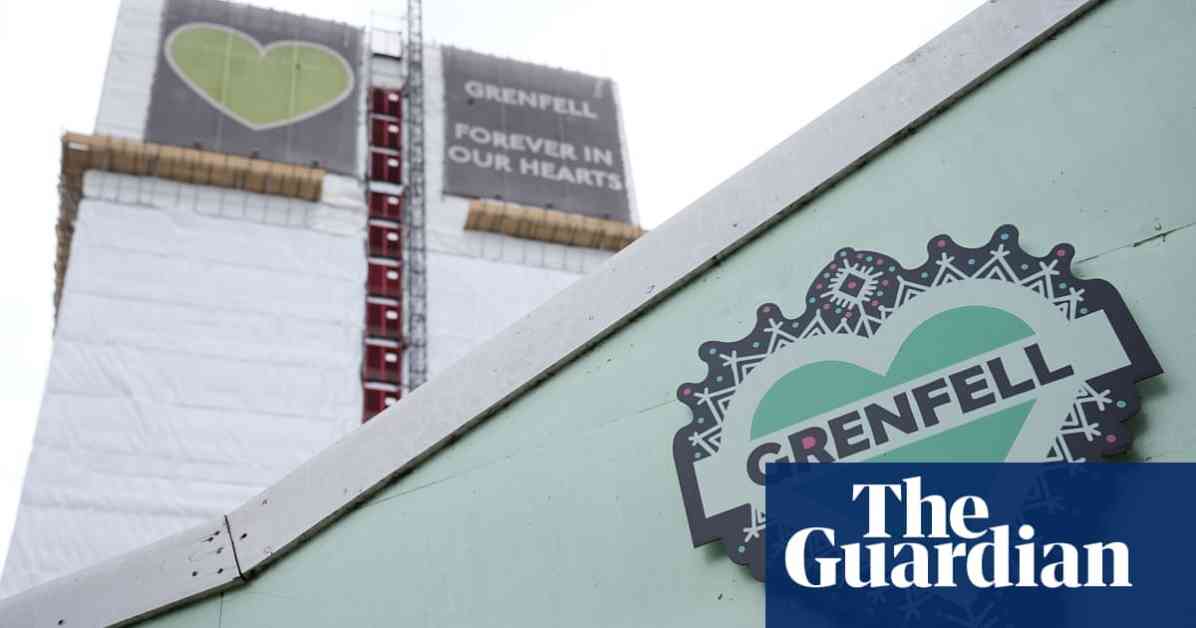Calls to Ban Firms Criticized in Grenfell Inquiry from Public Contracts
Companies criticized by the Grenfell Tower inquiry are facing mounting pressure to be banned from securing public contracts, following revelations that around £250m in deals have been awarded to corporations involved in the high-rise’s refurbishment over the past five years. The calls for accountability come as the final public inquiry report on the causes of the 2017 fire is set to be released this week.
Public Contracts with Controversial Companies
A recent analysis conducted by the outsourcing data firm Tussell for the Guardian uncovered numerous contracts between councils, health authorities, and housing associations with companies that were implicated in the disastrous refurbishment of Grenfell Tower. Among the companies under scrutiny are those currently or formerly owned by Saint-Gobain, the manufacturer of the combustible Celotex insulation used on the tower, and Rydon, the main contractor for the refurbishment works.
Karim Mussilhy, a prominent member of Grenfell United, which represents bereaved family members and survivors of the fire, expressed the sentiment that companies found responsible for the tragedy should be barred from participating in public contracts. Mussilhy’s uncle, Hesham Rahman, was one of the victims of the fire, further underscoring the personal stakes involved in holding accountable those responsible for the catastrophic events at Grenfell Tower.
Political Response and Accountability
Joe Powell, the Labour MP for Kensington and Bayswater, has advocated for suspending the ability of companies like Rydon and Saint-Gobain to bid for public contracts until they can provide a clear account of their actions leading up to the Grenfell Tower fire. Powell emphasized the importance of financial contributions from these companies towards addressing the broader building safety crisis, asserting that accountability should not be limited to legal proceedings but should also extend to financial responsibility.
The cross-party parliamentary housing group has also come under scrutiny for its sponsorship deal with Saint-Gobain, with calls for a reconsideration of the arrangement in light of the company’s involvement in the Grenfell Tower tragedy. The group’s chair, Jim Shannon, acknowledged the need to reassess the sponsorship deal in light of the findings of the public inquiry and the wishes of those affected by the fire.
Community Expectations and Legal Proceedings
Members of the Grenfell community are hopeful that the forthcoming public inquiry report will pave the way for criminal prosecutions and put an end to the pattern of passing blame among companies and public authorities. The pressure for consequences against the companies involved in the Grenfell Tower refurbishment reflects a broader desire for justice and accountability within the community.
While the prospect of criminal trials remains several years away, there is a growing sense of impatience and frustration among the bereaved and survivors of the Grenfell Tower fire. The significant costs incurred by public authorities in conducting the inquiry, alongside the commercial success enjoyed by some of the companies implicated in the tragedy, have only served to exacerbate feelings of injustice and inequality.
Financial Impact and Ethical Responsibility
Kingspan, a company implicated in the inquiry for misleading information about the safety of its insulation products, has seen a rise in pre-tax profits since the Grenfell Tower fire. In contrast, companies like Studio E, the architecture firm involved in the refurbishment design, have faced financial repercussions, with some going out of business or incurring losses due to their involvement in the Grenfell Tower tragedy.
The financial toll of the Grenfell Tower inquiry has been substantial, with public authorities and organizations collectively spending millions on legal fees and participation costs. The ongoing financial burden underscores the need for accountability and transparency in addressing the systemic failures that led to the tragic events at Grenfell Tower.
Corporate Accountability and Rebuilding Trust
In response to the mounting scrutiny, companies like Celotex and Saint-Gobain have expressed their condolences to the victims of the Grenfell Tower fire and emphasized their commitment to understanding and learning from the issues raised by the tragedy. Both companies have undergone internal reviews and safety tests to ensure compliance with relevant safety standards, while also acknowledging their respective roles in the refurbishment process.
Arconic, another company implicated in the Grenfell Tower refurbishment, has cooperated with the public inquiry process and made financial contributions towards settlements for those affected by the fire. The company has pledged to engage with legal proceedings and continue to support efforts to address the aftermath of the Grenfell Tower tragedy.
As the Grenfell Tower inquiry continues to unfold, the focus on corporate accountability and ethical responsibility remains paramount. The calls to ban companies involved in the refurbishment from securing public contracts reflect a broader push for justice and transparency in the wake of one of the UK’s most devastating tragedies.












